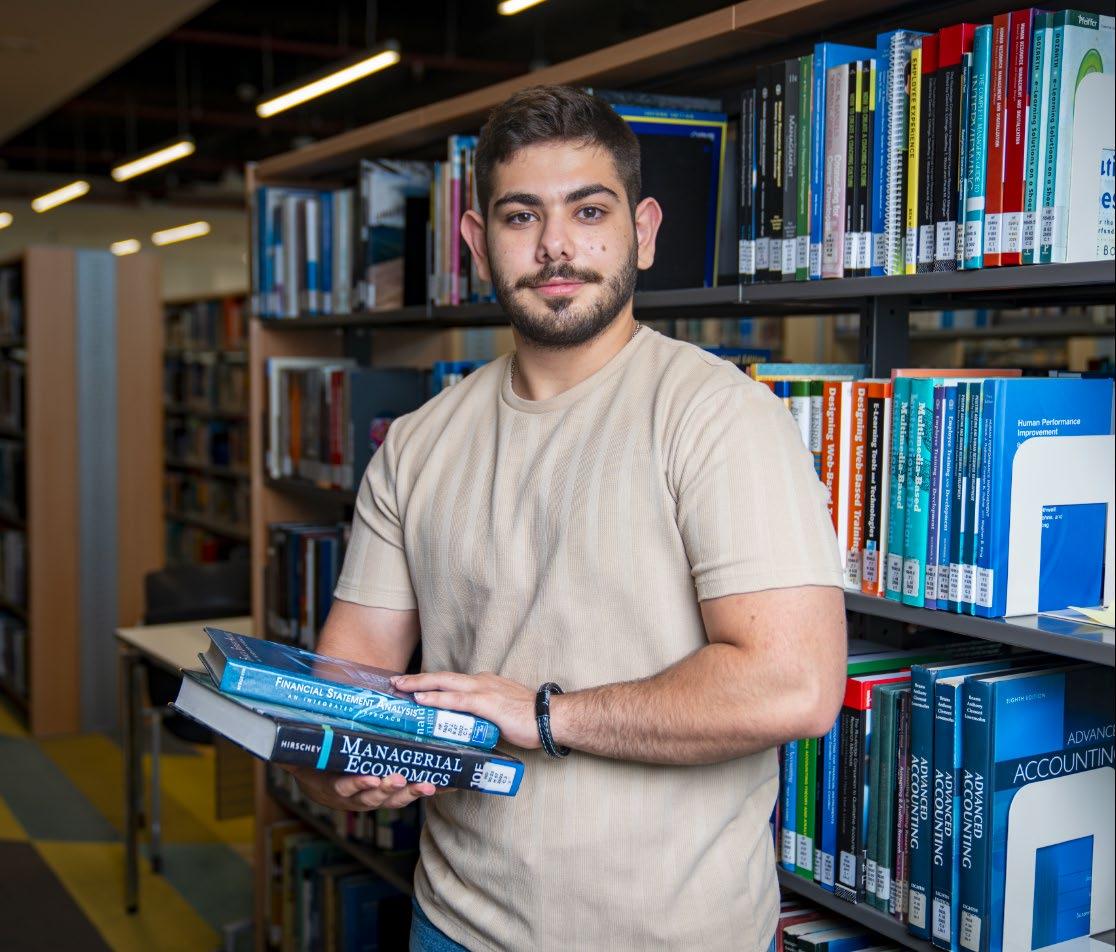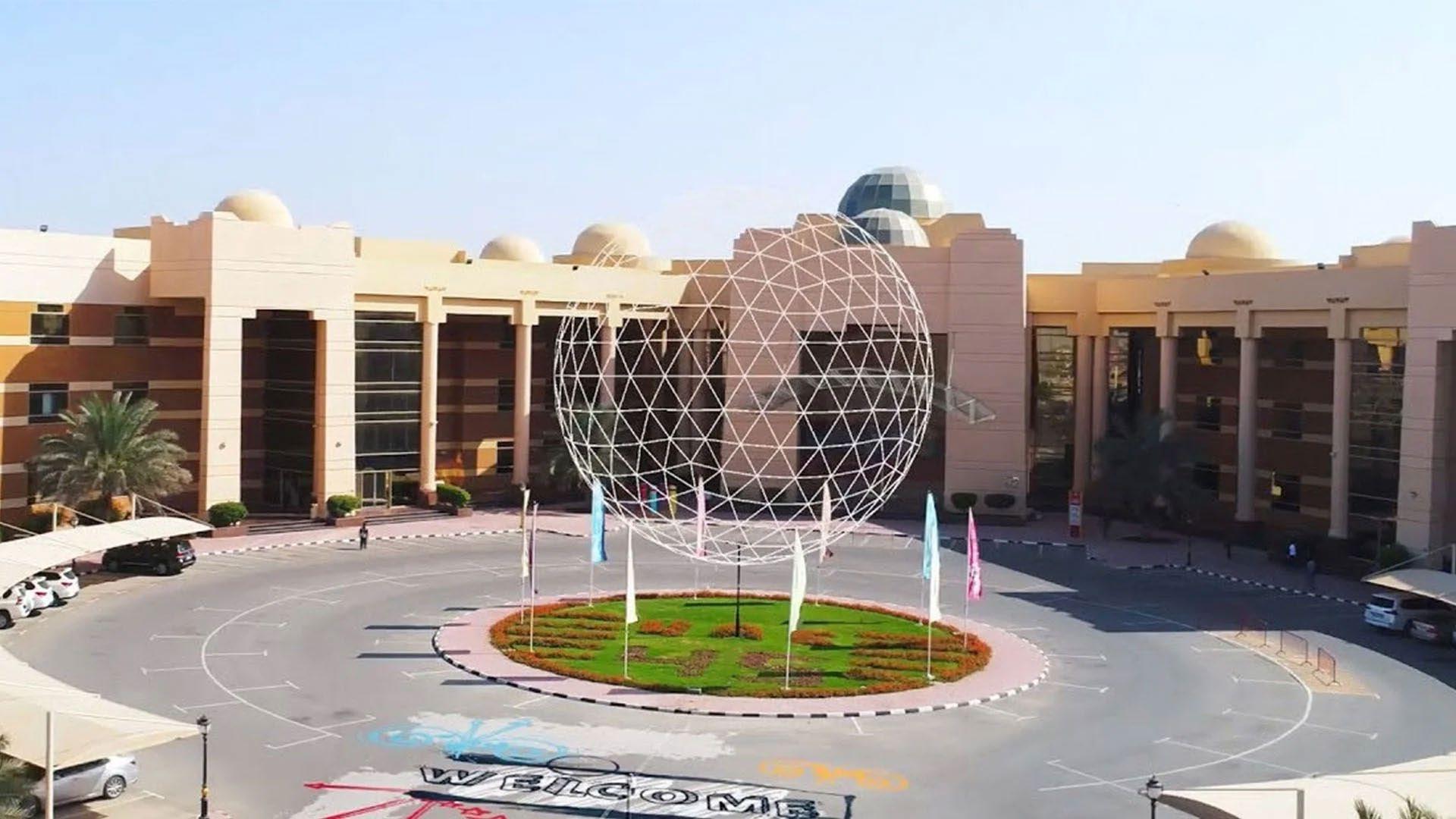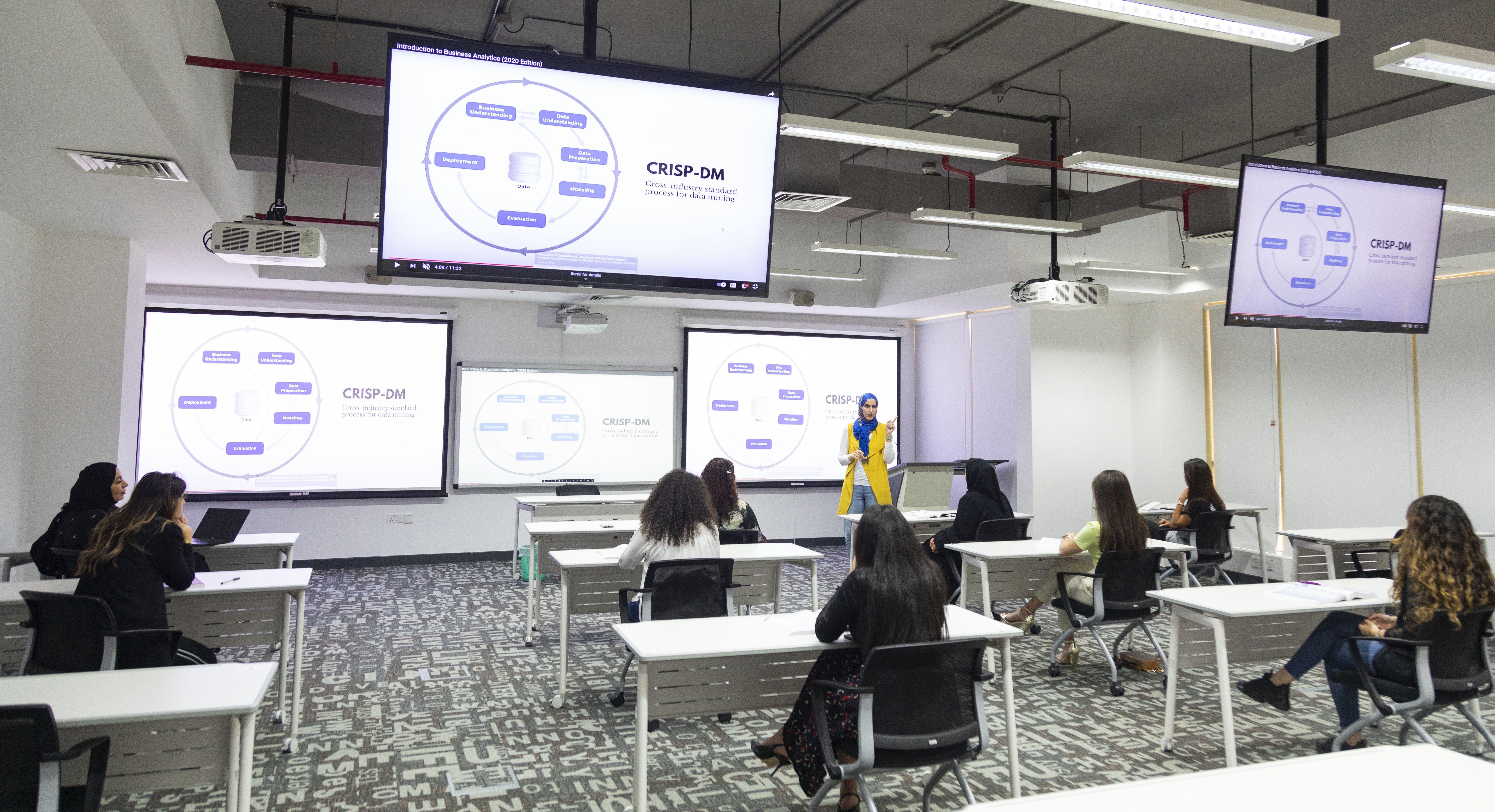
3 minute read
From Wall Street Dreams to UAE Reality: Pursuing Finance and Islamic Banking at Ajman University
Dani George Albadine Undergraduate in Finance and Islamic Banking Ajman University
In 2020, amid the challenges of a global pandemic, I made one of the most defining decisions of my life—I joined Ajman University to pursue a degree in business with a specialization in finance. Now, at 22 years old, I am in my final semester and poised to complete not only my major in finance but also a minor in Islamic banking. Looking back, this journey has been one filled with excitement, learning and the occasional curveball that comes with pursuing higher education in a rapidly changing world.
Advertisement
Why Finance at Ajman?

The choice to major in finance was no coincidence. My love for investing, coupled with an early fascination with movies like Wall Street, planted the seed for a future in finance. Growing up, I admired how financial markets drive economies and create opportunities for growth. For me, finance was not just about numbers and spreadsheets—it was about strategy, global impact and unlocking the potential of businesses. This passion is what ultimately led me to Ajman University, a choice I have never regretted.
Ajman University stood out to me not only because of its strong reputation but also because of its strategic location in the United Arab Emirates, a country known for its growing financial sector and dynamic business environment. This local context provided a unique blend of global and regional market insights, something I knew would be crucial for my career. Additionally, Ajman’s business curriculum is known for integrating international standards with the intricacies of local markets, making it a perfect fit for someone who aspired to work in investment banking.
A Challenging yet Rewarding Journey
Like any student, my academic journey has had its highs and lows. One of the challenges I did not anticipate was balancing my major in finance with the additional coursework required for my minor in Islamic banking. Islamic finance, with its distinct principles like the prohibition of interest (riba) and risk-sharing contracts, required a new way of thinking—one that was both fascinating and challenging. However, this minor became one of the most rewarding aspects of my education, as it deepened my understanding of finance in the regional context and opened up opportunities in sectors that align with the UAE's growing focus on Islamic financial institutions.
Another challenge was adapting to online learning when the pandemic shifted everything to virtual classrooms. Navigating finance subjects, which often involve complex theories and quantitative analysis, was difficult ence made me more adaptable and resilient, qualities I believe will be invaluable in the ever-changing world of finance.

Incorporating Local Market Knowledge in a Global Curriculum
One of the most striking aspects of my education at Ajman University has been the way the program blends global business theories with local market realities. For instance, while we study global financial systems and models, our professors often use examples from the UAE’s own market—whether it’s the rapid growth of Dubai’s financial district or global Islamic banking sector. designed to tackle real-world challenges faced by local businesses. For example, in one of my finance courses, we were tasked with creating a financial strategy for a local Small and Midsize Enterprise (SME) to help it grow and expand its operations. This project helped me apply what I had learned in class to the local business environment, taking into account factors like the local market’s unique consumer behaviors, regulatory frameworks and economic conditions.
In my Islamic banking courses, the examples and case studies often focus on how these principles are applied in the UAE. This not only helps in understanding how global theories can be localized but also shows the relevance of what we’re learning in a real-world, local context. It has been eye-opening to see how a country like the UAE, which is deeply integrated into the global economy, can still uphold its local traditions and values through specific financial instruments tailored to its population.

As I prepare to graduate, my long-term goal is to become a Chartered Financial Analyst (CFA) and work in investment banking, preferably in an institution that allows me to integrate my knowledge of both conventional and Islamic finance. The UAE, with its position as a financial hub, is the perfect place to launch my career, as it offers a dynamic market that is still growing and adapting to global trends.
In five years, I see myself working at a leading investment bank, perhaps one that specializes in sustainable finance—an area I’ve grown increasingly passionate about during my knowledge and expertise in a field that continues to evolve as global markets become more interconnected.
In conclusion, my experience at Ajman University has been one that truly embodies the theme of this special edition of UniNewsletter: customizing business education for local contexts while maintaining a global perspective. The ability to learn global financial concepts while applying them to the UAE’s unique market has not only enriched my understanding of finance but has also better prepared me for the diverse opportunities that await in my future career.





